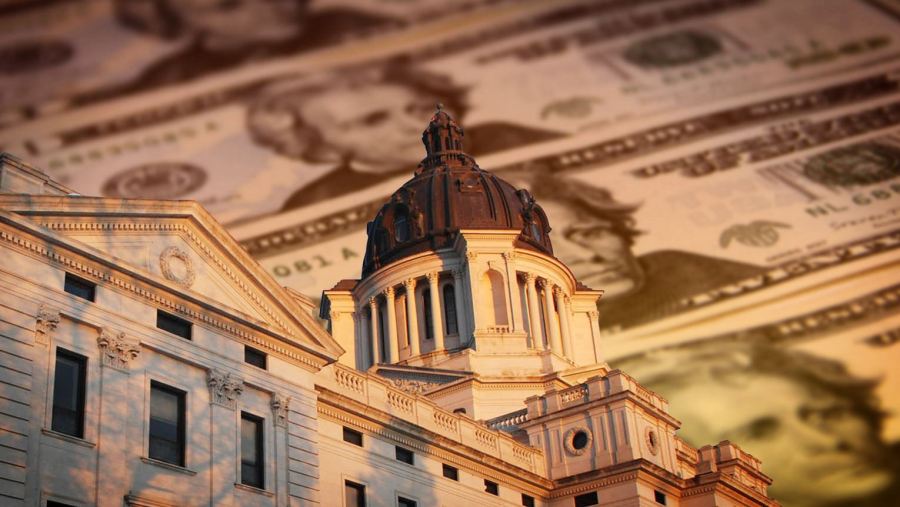SIOUX FALLS, S.D. (KELO) – Sioux Falls Mayor Paul TenHaken is now the chair of a statewide ballot question committee called South Dakotans Against a State Income Tax.
The group submitted paperwork with the South Dakota Secretary of State’s office in June with TenHaken listed as the chair and South Dakota Retailers Association Executive Director Nathan Sanderson listed as the group’s treasurer.
The group also launched a website at nosdincometax.com. The website features a photo of a mouse trap and a mouse eating a cube of cheese alongside a message in big bold letters: “Don’t take the bait. Vote No on IM28.”
IM28 stands for Initiated Measure 28 which is officially listed by the attorney general as “an initiated measure prohibiting taxes on anything sold for human consumption.”
IM28 is also called a grocery tax repeal by the ballot measure sponsor Rick Weiland. The question qualified for the November 2024 ballot in May after more than 22,000 signatures were deemed valid.
News conference set for Tuesday
On Tuesday, TenHaken, Sanderson and Ryan Rolfs, the South Dakota Education Association executive director, are holding a press conference to discuss efforts about the campaign opposing IM28.
In April, TenHaken told KELOLAND News about his concerns with budget cuts to the city that would stem from the tax cut.
Weiland has highlighted how South Dakota remains one of two states that taxes food at a full rate without offering credits or rebates for people with lower incomes.
Ninety thousand South Dakotans face food insecurity, according to Feeding South Dakota.
State lawmakers are also divided on the issue. Democratic Sen. Reynold Nesiba told KELOLAND News economists view the tax on groceries as “a regressive tax.”
“Lower-income people spend a bigger share of their total income on food. That means they also spend a bigger share of their total income on the food tax.”
Republican Rep. Tony Venhuizen told KELOLAND News he believes if the ballot measure passes it will end up in court while creating budget issues at the city level too.
“It’s just not responsible to put something on the ballot that costs $100 or $150 million a year, and then it’s someone else’s problem to find the money,” Venhuizen said.
The specific language of the ballot measure has been criticized by many, including the South Dakota Legislative Research Council which specifically said “the phrase ‘the sale of anything sold for eating or drinking by humans’ may be overly vague.”
In 2023, Republican Gov. Kristi Noem pulled her support for the ballot measure citing concerns about the language used to attempt to repeal the grocery tax. Noem made ending the grocery tax a top campaign promise for re-election in 2022 but state lawmakers opted to reduce the overall sales tax rate through June 2027 instead.
According to the attorney general’s explanation, human consumption is not defined by state law, but the common definition includes more than foods and drinks. The explanation says judicial or legislative clarification of the measure will be necessary.


